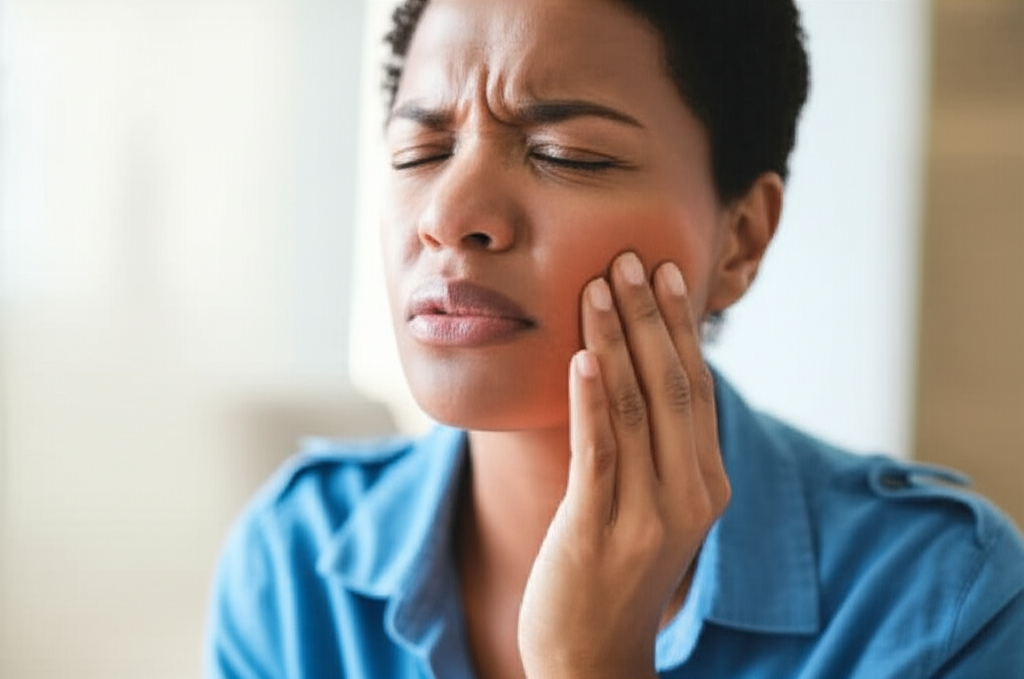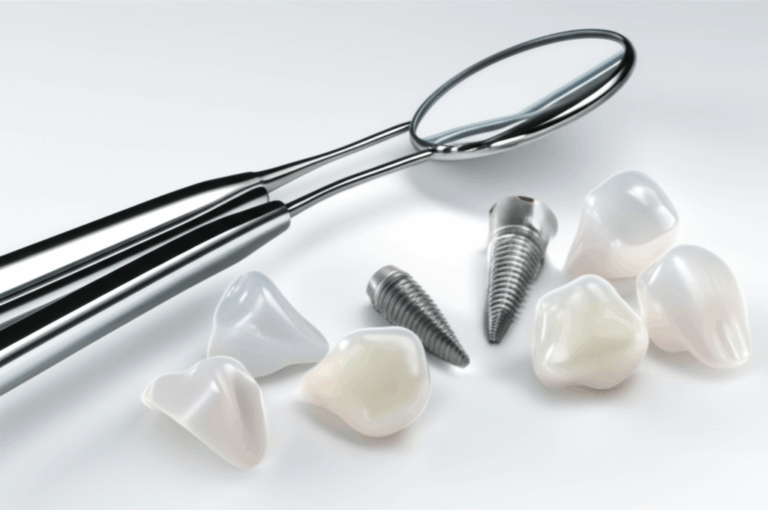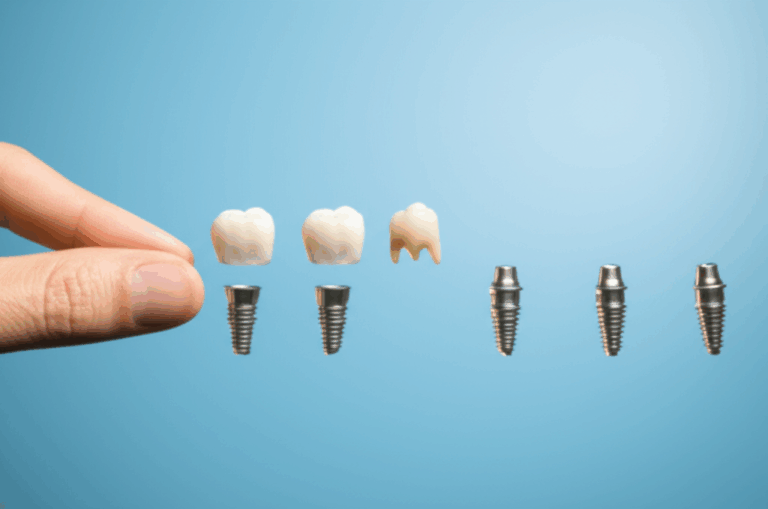
What Are Dental Problems? Your Guide to Common Mouth Issues
If you’ve ever wondered, “What are dental problems, anyway?” you’re not the only one. I used to think dental issues just meant getting a cavity or having a sore tooth—until I learned how much teeth and gums really matter for your whole body. In this article, I’ll share what I’ve learned about dental problems, what brings them on, how you can spot them early, and some simple things you can do to keep your mouth healthy. I’ll also include a few stories and tips from my own life. By the end, you’ll know what dental problems are, which ones are most common, and what you can do about them—without any hard-to-understand stuff.
Table of Contents
- The Most Common Types of Dental Problems
- General Symptoms Indicating a Dental Problem
- What Causes Most Dental Problems?
- Prevention: How to Maintain Optimal Oral Health
- When to Seek Professional Dental Help
- Conclusion
Introduction
When I think back to being a kid, I remember all those toothpaste ads and my parents saying, “Brush your teeth, or you’ll get cavities!” As I got older, I found out those warnings only tell part of the story. Dental problems are so much more than just a pain—they’re issues that mess with your teeth, gums, and the inside of your mouth. After seeing my friends, family, and myself go through many mouth problems, I realized that taking care of your mouth isn’t just about avoiding pain. It affects your whole body, your confidence, and even how well you eat or talk.
The thing that really surprised me was how common these troubles are. The World Health Organization says issues like cavities and gum disease hit almost 3.5 billion people worldwide! That’s about half the people on earth.
So if you’re wondering if you’re the only one—no need to worry. Dental problems are super common. The real question is, what can you do about them?
The Most Common Types of Dental Problems
Once I started looking into dental health, I was shocked by how many things can go wrong inside your mouth. Here’s a quick breakdown of the main ones I’ve seen, both in my own life and what I’ve learned.
1. Tooth Decay (Cavities)
Let’s start with the classic: tooth decay. I’ll never forget the dull pain I got after skipping flossing for a few nights. Tooth decay happens when germs in your mouth eat sugar and make acid, slowly wearing away your enamel—the hard, white outside part that keeps your teeth safe.
Causes: Eating lots of sweet snacks, bad brushing habits, and even having a dry mouth (not enough spit) all make you more likely to get cavities.
Symptoms: The first sign is usually a sore tooth or tooth that’s sensitive to hot or cold foods. Sometimes you can see a hole or dark spot.
Treatment: For me, a fast trip to the dentist and getting a small filling fixed it. But if you leave it too long, you might need a cap or even a root canal if your tooth gets badly infected.
If you ignore tooth decay, it can turn into really bad problems like abscesses or tooth loss.
Related Reading: Learn more about dental ceramics lab solutions for fixing serious tooth problems.
2. Gum Disease
I used to think gum disease only happened to old people, but I found out anyone can get it. Gum disease means your gums and the stuff holding your teeth in place get infected. It starts off not so bad but can get serious if you don’t treat it.
Stages:
- Gingivitis: This is the early, fixable stage. I noticed this when my gums were a bit puffy and bled when I brushed too hard. Redness and swelling are key signs.
- Periodontitis: If gingivitis gets worse, it turns into periodontitis. This is when the infection goes deep, your gums pull away from your teeth, and your jawbone can start to break down. You might lose a tooth.
Causes: The big problems here are plaque and tartar (hard plaque you can’t brush off yourself)—meaning bad brushing or missing your dentist visits.
Symptoms: Puffy or bleeding gums, bad breath that won’t go away, loose teeth, and shrinking gums all mean you might have gum disease.
Treatment: Dentists usually start by giving your teeth a deep clean (scaling and root planing). Really bad cases might need gum surgery.
Why It Matters: Gum disease doesn’t just mess with your smile. There are links between gum disease and things like diabetes and heart problems. I pay a lot more attention to my gums now!
Extra Tip: Want to see how this ties into whole-body health? Read about oral health and general health.
3. Bad Breath
We all get morning breath, but bad breath that sticks around—called halitosis—can mean bigger problems. The first time my breath stayed bad all day, it was a warning sign for something else going on.
Causes: Bad breath often comes from gum disease, tooth decay, dry mouth, smelly foods, or sometimes sickness or health problems.
Solutions: Brushing and flossing help, but don’t forget to clean your tongue. Regular check-ups are important too. If you still have trouble, your dentist can help figure out why.
4. Tooth Sensitivity
Tooth sensitivity took me by surprise—the first time I ate ice cream and pain shot through a tooth, I knew something was wrong! It’s that sharp, sudden pain you get from hot, cold, sweet, or sour foods.
Common Causes:
- Enamel wearing away (from drinking soda, or brushing too hard)
- Gums moving away from your teeth so the roots show
- Cavities
- Cracked teeth
Fixes: Over-the-counter toothpaste for sensitive teeth helped me, but sometimes you need more help from your dentist, like fluoride or a filling.
5. Dental Abscess
A dental abscess is terrible. I’ve seen friends go through it when they ignored a bad toothache for too long. An abscess means there’s a pocket of pus from infection, either in the tooth, under it, or in your gums.
Symptoms: Bad, lasting tooth pain, sore when you touch it, swollen face or neck, fever, and sometimes a bump near the tooth.
Treatment: The dentist will drain it, give you medicine, and often do a root canal or pull the tooth.
Warning: Dental abscesses are emergencies. Always get help right away if you notice these signs.
6. Teeth Grinding (Bruxism)
Ever wake up with a sore jaw or notice someone grinding their teeth at night? I’ve done this during stressful times—grinding or clenching without meaning to.
Causes: Stress, feeling anxious, sleep trouble, or your teeth not fitting right.
Symptoms: Headaches, sore jaw, worn-down teeth, sensitive teeth.
Fixes: Wearing a mouthguard at night stopped me from wearing down my teeth. Dentists might also suggest stress relievers or sometimes fixing how your teeth meet.
Want to see how a mouthguard is made? Check out night guard dental labs.
7. Other Common Mouth Problems
- Enamel Wear: Too many sour or fizzy drinks can wear away teeth, making them hurt and easy to get cavities.
- Wisdom Teeth Issues: I once had a wisdom tooth stuck under my gums, leaving me in pain. Dentists often pull these out.
- Oral Thrush: A mouth yeast infection, mostly seen in babies, older people, or those with weak immune systems. You’ll see white patches.
- Canker Sores: Small, painful lumps inside the mouth. Not serious, but annoying.
- Chipped or Broken Teeth: I broke a tooth biting popcorn. See your dentist to avoid worse problems.
General Symptoms Indicating a Dental Problem
I used to ignore little hurts or gums that bled. But those early warnings taught me to take care of things quickly. Here are signs I don’t ignore anymore:
- Toothache or jaw pain that won’t go away
- Bleeding or puffed-up gums
- Bad breath that doesn’t get better
- Pain to hot or cold
- Wiggly adult teeth
- Trouble chewing or eating
- Swelling in your mouth, cheeks, or neck
- Holes, black spots, or craters in your teeth
- Gums pulling back (teeth look taller)
If I get any of these, I call my dentist. Don’t wait!
What Causes Most Dental Problems?
After seeing my own dentist for a few years—and reading a lot—I found out it’s not just about brushing every morning and night. Here’s what really causes most problems:
Not Cleaning Your Teeth Well:
This is the main cause. If you don’t get rid of plaque (the sticky stuff germs make), you’ll start getting other issues.
What You Eat:
Lots of sugar and sour foods and drinks hurt your teeth. Germs turn sugar into acid and that ruins your enamel. I switched out soda for water or crunchy veggies—my teeth liked it better.
No Fluoride:
Fluoride makes enamel tougher. I make sure my toothpaste has it.
Smoking and Drinking:
A friend of mine couldn’t get rid of his gum problems until he finally stopped smoking. Smoking and heavy drinking make almost every dental problem worse.
Dry Mouth:
Spit helps clean your mouth. Some medicines or not drinking enough water will dry your mouth out.
Health Problems:
Diabetes can mean more gum problems, and some illnesses make you more likely to have mouth troubles.
Medicines:
Things like allergy pills and antidepressants dried up my mouth—a risk for cavities.
Family History:
Some people are just born with weaker teeth or gums. It doesn’t seem fair, but it just means you need to be extra careful.
Injury:
Sports bumps or accidents can break, chip, or even knock out teeth. That’s why I tell kids to use mouthguards for sports!
Being Stressed:
It’s not just bad for your mood. I started grinding my teeth when I was under a lot of stress, which hurt my jaw and teeth.
Prevention: How to Keep Your Mouth Healthy
After a few years of ups and downs (and some sore teeth), here’s what I do to keep my mouth in good shape:
- Brush Twice a Day: I use fluoride toothpaste and take my time. Especially before bed, I don’t rush.
- Floss Every Day: When I got serious about flossing, my gums stopped bleeding and checkups got better.
- Use Mouthwash (Optional): Some love it, some don’t. I like a fluoride or clean-tasting rinse after meals.
- Eat Less Sugar and Acid: I still enjoy treats, but I chew some sugarless gum or rinse with water afterward.
- Drink Water: Staying hydrated keeps my mouth from getting dry and helps get rid of food bits.
- See the Dentist Regularly: Twice-a-year visits mean small problems get caught early.
- Don’t Smoke: I quit and wish I did it sooner.
- Mouthguards Help: A mouthguard helped my jaw and stopped me from breaking my teeth at night.
Need more tips? Find a full guide on teeth health and smart dental care.
When to See a Dentist
For a long time, I put off seeing the dentist, hoping any problems would get better by themselves. I learned the hard way that waiting can make a small problem grow big. My rule now:
- If pain sticks around more than a day, I call the dentist.
- If gums bleed a lot, swell, or have pus, see a dentist.
- Any sore, bump, or strange spot that won’t go away should be checked out.
- Broken or knocked-out teeth need help right away.
- If you have swelling, pus, or fever, don’t wait.
Even healthy people need check-ups. Regular visits are your best bet for catching issues early.
Conclusion
Through my own ups and downs—with some fillings, lots of cleanings, and plenty of nerves about going—I’ve learned that dental problems are super common but usually nothing to panic about. Most can be stopped and fixed. If you take care of your teeth, you’re looking after more than just your smile; you’re protecting your health, too.
The biggest thing I learned? Don’t wait for pain—build good habits, watch for small signs, and never be shy about seeing the dentist.
Want to learn more? Check out this big teeth information guide.
Here’s to healthier, brighter smiles—one brushing (and flossing) at a time!








